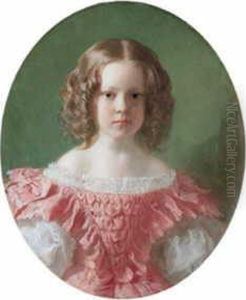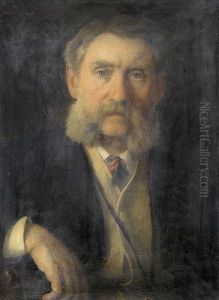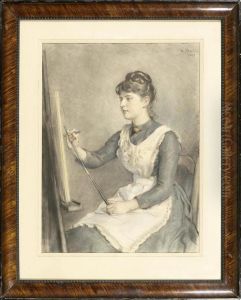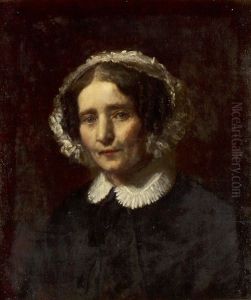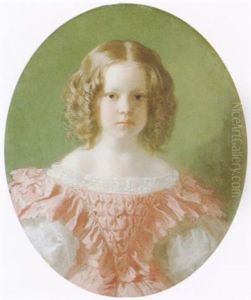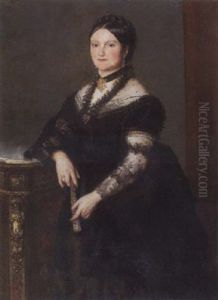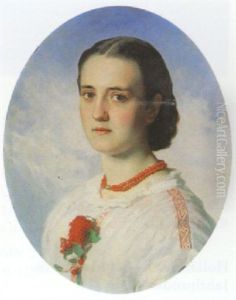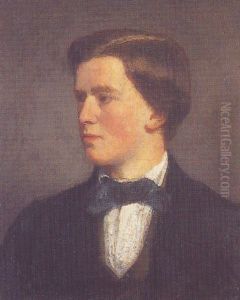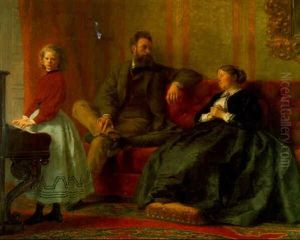Wilhelm Heinrich Fussli Paintings
Wilhelm Heinrich Füssli, better known as Henry Fuseli, was a Swiss painter, draughtsman, and writer on art, who spent much of his life in Britain. Born on February 7, 1741, in Zürich, Switzerland, into a family of artists and writers, Fuseli displayed an early inclination towards literature and art. Initially, he was ordained as a Zwinglian minister, but his interest in the arts led him to pursue a career in painting.
In 1761, Fuseli moved to Berlin, and later to London, where he aimed to become a painter. His initial focus was on portraiture, but he soon shifted to historical and mythical themes that were rich in dramatic intensity and psychological depth. Fuseli's style was heavily influenced by the works of Michelangelo and classical art, as well as the burgeoning Romanticism movement. His work is characterized by its dynamic compositions, dramatic contrasts of light and shadow, and a penchant for the macabre and fantastical.
A key event in Fuseli's life was his stay in Italy from 1770 to 1778, where he studied the masterpieces of the Renaissance and came into contact with the Neoclassical circles. This experience profoundly shaped his artistic sensibilities. Upon his return to Britain, Fuseli produced one of his most famous works, 'The Nightmare' (1781), which depicts a demonic incubus perched on a sleeping woman. The painting became an icon of the Romantic movement and cemented Fuseli's reputation as a painter of the supernatural.
Fuseli was a prolific artist and exhibited regularly at the Royal Academy in London. In 1788, he became an associate member, and in 1790, he was made a full Academician. He served for a time as the Academy's Keeper, a role that involved overseeing the education of young artists. Throughout his career, Fuseli painted over 200 works, wrote extensively on art theory and criticism, and influenced a generation of British artists, including William Blake.
Fuseli's personal life was marked by his passionate and tempestuous nature. He had a long-standing relationship with Sophia Rawlins, whom he eventually married in 1788. Despite his success, Fuseli often struggled financially and was known for his wit and fiery temperament, which both attracted and alienated his contemporaries.
Henry Fuseli died on April 16, 1825, in Putney Hill (now part of London). His legacy lives on through his imaginative and emotive works, which continue to be celebrated for their originality and influence on the Romantic movement in art.
